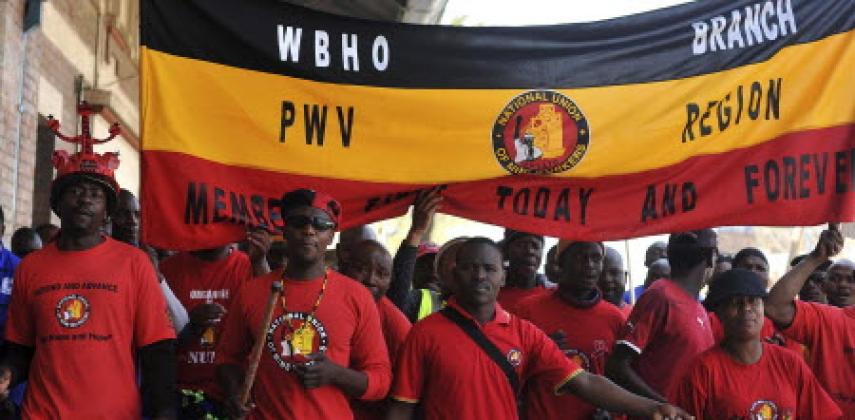Johannesburg: South Africa may face strikes involving as many as 335,000 workers after deadlocks in wage talks between employers and the country’s biggest labour unions spread to gas stations and car dealerships.
About 72,000 motor-industry workers will walk out on September 2 after a breakdown in wage talks between the National Union of Metalworkers of South Africa (Numsa), the Fuel Retailers Association and Retail Motor Industry Organisation, the Johannesburg-based union said. They will join employees in the auto-manufacturing, construction and aviation industries who are already on strike, while gold-mining companies face the threat of labour action.
Numsa “has taken a conscious decision to exercise our hard fought democratic and constitutional right to embark on an indefinite strike action,” spokesman Castro Ngobese said. “The strike action has not been on our agenda, but it has been imposed on us” after the motor industry didn’t meet union demands.
South Africa has been wracked by labour disputes for more than a year, hurting economic growth. Inflation accelerated to 6.3 per cent in July, the highest in 15 months, while the rand has weakened 20 per cent against the dollar this year, the worst performer of 16 major currencies tracked by Bloomberg.
About 30,000 workers at plants operated by car manufacturers including Toyota Motor, BMW and Volkswagen have been on strike since August 19, while 600 technical staff at state-owned South African Airways and 90,000 employees at building companies have also stopped work.
“From our statistics, about 49 per cent of canvassed companies employees didn’t turn up for work on August 26,” said Annemie Cowley, manager for communications and marketing at the South African Federation of Civil Engineering Contractors (SAFCEC). “We remain hopeful that the strike will not be of a long-term nature. About 90,000 workers are employed in the civil engineering contracting industry.”
Unions have rejected a 7.5 per cent offer from the SAFCEC, which has about 400 employer members including Murray & Roberts Holdings and Aveng, the country’s biggest construction companies, according to the federation.
“We are in continuous dialogue with” unions, it said. We are “optimistic that an agreement can be reached through continued dialogue,” Cowley said.
The National Union of Mineworkers, the biggest union in the gold-mining industry, attended a meeting on wages on August 27 and reached a point of non-resolution with mining companies, general secretary Frans Baleni said.
The Association of Mineworkers and Construction Union, the second-largest representative of employees at bullion producers, also rejected a revised offer and has applied for a certificate of non-resolution, said Elize Strydom, the chief negotiator for gold companies at the Chamber of Mines. The permit gives the union’s members permission to start an authorized strike.
A gold-mining strike would result in 142,000 people stopping work in an industry already affected by a 15 per cent decline in the price of the metal this year.
“Strikes are not the end of the world,” Finance Minister Pravin Gordhan said at a mining conference in Johannesburg on August 27. “Let the workers and the employers find the right balance. At the end of the day, there must be enough co-operation to create normality in our environment.”
The strike at South African Airways has caused only minor disruption to flights, according to its spokesman Tlali Tlali. There have been four flight delays, he added.
“The company is still hopeful that a speedy resolution to the current impasse can be found,” he said.
(BLOOMBERG)


